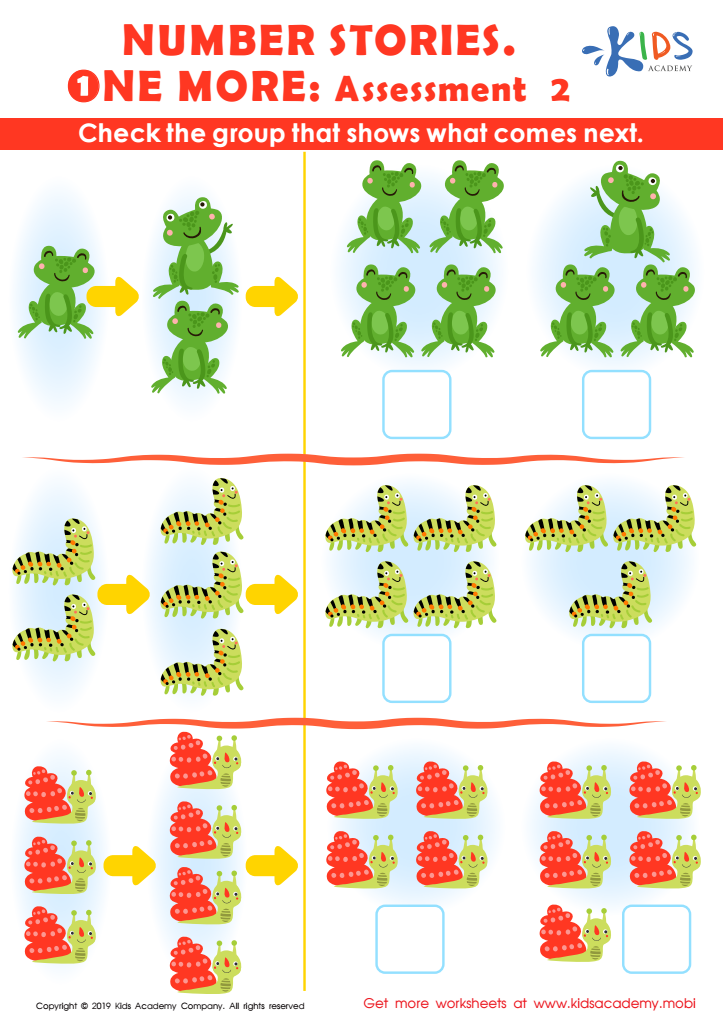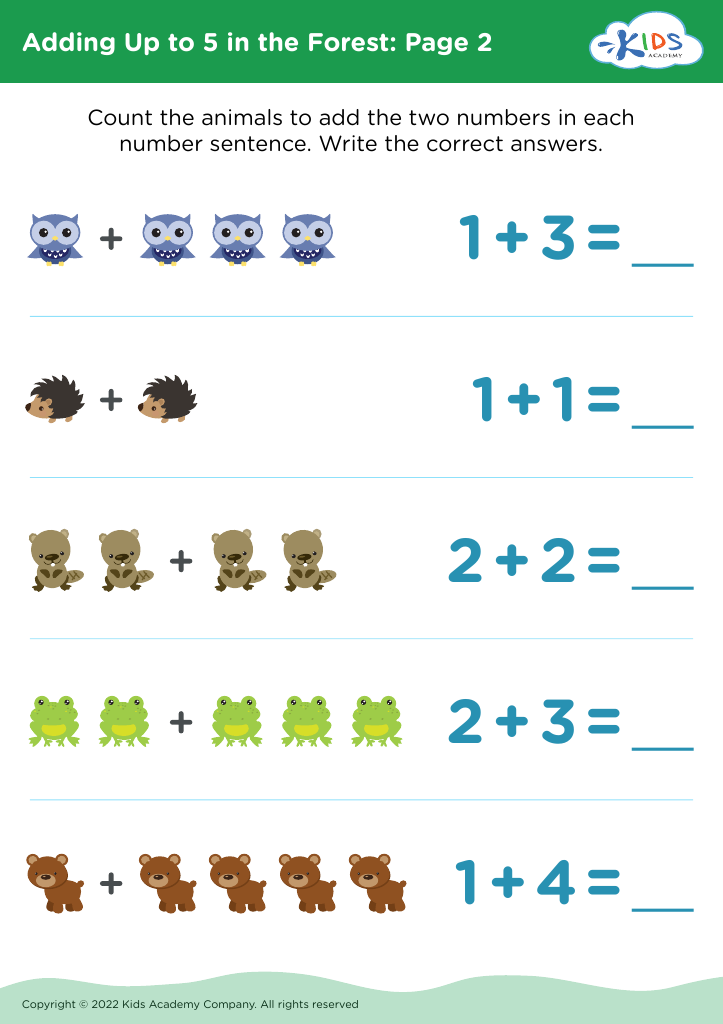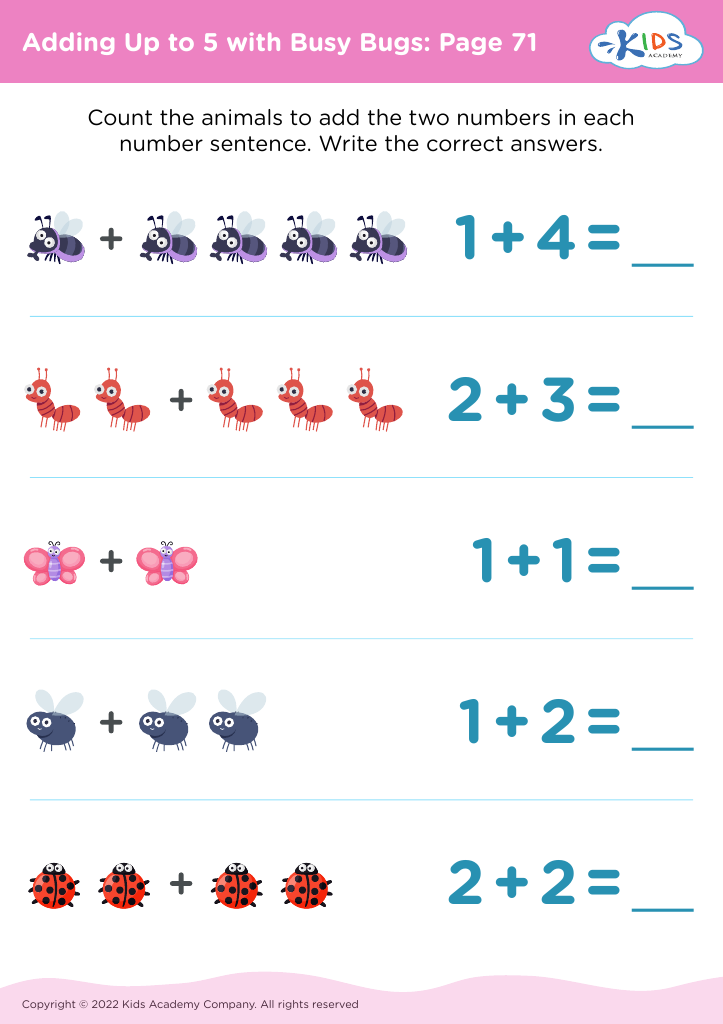Problem-solving practice Math Worksheets for 3-Year-Olds
3 filtered results
-
From - To
Discover engaging Problem-solving practice Math Worksheets designed specifically for 3-year-olds! Our worksheets are crafted to enhance early math skills through fun and interactive exercises. They encourage young learners to think critically, recognize patterns, and solve simple problems while developing essential cognitive abilities. Each worksheet is visually appealing and includes a variety of age-appropriate activities that make learning enjoyable. Ideal for preschool settings or at-home practice, these worksheets support foundational math understanding in a playful way. Equip your child with essential skills and watch their confidence grow as they tackle problem-solving challenges in a friendly format. Start exploring today!


Number Stories One More – Assessment 2 Worksheet
Parents and teachers should prioritize problem-solving practice in math for 3-year-olds because it lays the groundwork for critical thinking and cognitive skills vital for lifelong learning. At this young age, children are naturally curious and eager to explore their environment. Engaging them in problem-solving activities helps develop their ability to think independently and approach challenges systematically.
Incorporating math-focused problem-solving, such as sorting shapes, counting objects, or simple pattern recognition, strengthens their understanding of numbers and relationships between quantities. These activities not only enhance mathematical understanding but also enrich language development, as children describe their thought processes and engage in discussions.
Moreover, fostering problem-solving skills during early childhood contributes to increased confidence and resilience in the face of challenges. Children learn that making mistakes is a part of the learning process, encouraging a growth mindset that promotes persistence.
Lastly, early exposure to math concepts supports smoother transitions to more complex mathematical thinking in later years. By actively nurturing these skills through engaging and playful activities, parents and teachers help ensure that children become competent and confident learners as they progress in their educational journey.


 Assign to My Students
Assign to My Students




















